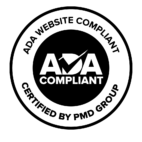
While there are fewer visual reminders of last year’s hurricane season, one industry that continues to be impacted is the auto industry. Hundreds of thousands of new and used cars were flooded in Texas, Louisiana, and Florida during Hurricanes Harvey and Irma. Some of the flooded vehicles are still showing up for sale in markets across the United States. While selling a vehicle that has flood damage is legal, not disclosing that information to the buyer is illegal. If you are in the market for a new or used automobile, here are some tips on how to avoid buying a flooded car that may have undisclosed flood damage:
- Look for mud on the carpets, which can indicate water was inside a flooded car. New carpets in an older vehicle could also be suspicious.
- How does it smell? If there is a musty, stale odor, especially when running the air conditioner, there is a good chance there was standing water in the vehicle.
- Check the headlights for water lines and trapped moisture. Also, check for fogging on interior lights and excessive condensation on windows.
- Check under the hood, beneath the spare tire, and in gaps in the trunk for debris in hard to reach places.
- Look for signs of rust on unpainted surfaces and screws. Oxidation under the hood can also appear as a white powder or create small holes.
- Check to see if the rubber drain plugs are in place under the car and on the bottoms of doors. If they are missing, it may be because they were removed to drain floodwater.
- Test all the electrical components. Sunroofs, radios, Bluetooth systems, lights, wipers, automatic door locks, windows, air conditioning and heat, automatic seats, rear cameras, and all other electric devices within the car should be checked for consistent performance. Erratic performance is a strong indicator of possible water damage.
If you have found an automobile that passes all the above inspections, be sure to check the VIN number before signing anything. A reputable dealer or salesperson will be forthcoming with any possible issues the auto may have and don’t hesitate to have your trusted mechanic inspect it as well. When buying a car, it’s important to remember that if a deal seems too good to be true, it probably is.
Sources: The Morning Call, The New York Times, and Consumer Reports



